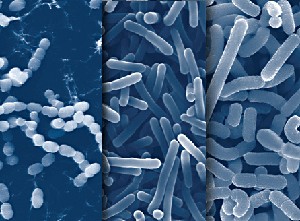An Introduction to Probiotics and Its Potential in Clinical Applications
Our company is exploring potential clinical applications in uremia with friendly microbes known as probiotics which are defined as live microorganisms which when administered in adequate amounts confer a health benefit on the host. These microbes are commonly found in dairy foods such as milk, yogurt, kefir, cheese and other fermented foods and represent an expanding medical research area. They are quickly gaining interest as functional foods in the era of self-care and complimentary medicine. Microbes have been used for years in food and alcoholic fermentations and relatively recently have undergone scientific scrutiny for their purported health benefits.
Probiotics Research
A Medline search of the term probiotics illustrates the significant increase in research undertaken in this area during the past five years: over 1,000 publications cited compared to 85 for the previous 25 years. While this demonstrates the potential significance of this emerging field, much still remains to be explored and scientifically and clinically validated. Some of the claims for which research supports a beneficial probiotic consumption include: improving intestinal track health, enhancing the immune system, synthesizing and enhancing the bioavailability of nutrients, reducing the symptoms of lactose intolerance, decreasing the prevalence of allergy in susceptible individuals, and reducing the risks of certain cancers. The mechanisms by which probiotics exert their effects are largely unknown but may involve modifying gut pH, antagonizing pathogens through production of antimicrobial and antibacterial compounds, competing for pathogen binding and receptor sites as well as for available nutrients and growth factors.
Clinical Evidence
Although clinical evidence of the tangible benefits of treatment with probiotics is mounting, their prescription remains under-explored commercially. Hence, we have patented our proprietary product formulation known as Kibowbiotics that is specifically targeted to metabolize and extract uremic toxins as a component of our company’s gut-based platform technology.
Products were tested for microbiological content, urea hydrolysis, and gastrointestinal transit. Viability results were compared to the information available on their labels. Products were stored in the dark at 4[deg]C and analyzed before their expiry or sell-by date. Products were cultured on appropriate bacteriological media, and organisms grown were counted and identified.
Over twenty-five, products were analyzed for viability, urea hydrolysis, and Gastrointestinal (GI) transit. Seven of the twenty-five products did not show a count greater than 105 CFU per capsule/tablet due to below the average count. Four of the eighteen remaining products were found to contain counts similar to the products’ [apos] claim.
Two of twenty-five product showed efficiency for removing urea in AIF after passing through GI tract.
N Ranganathan, Ph.D.
Kibow Biotech Inc., Philadelphia, PA
Journal of the American Society of Nephrology 15: Oct 2004 pp. 768A PUB032
Introduction to Probiotics – Potential in Clinical Applications



